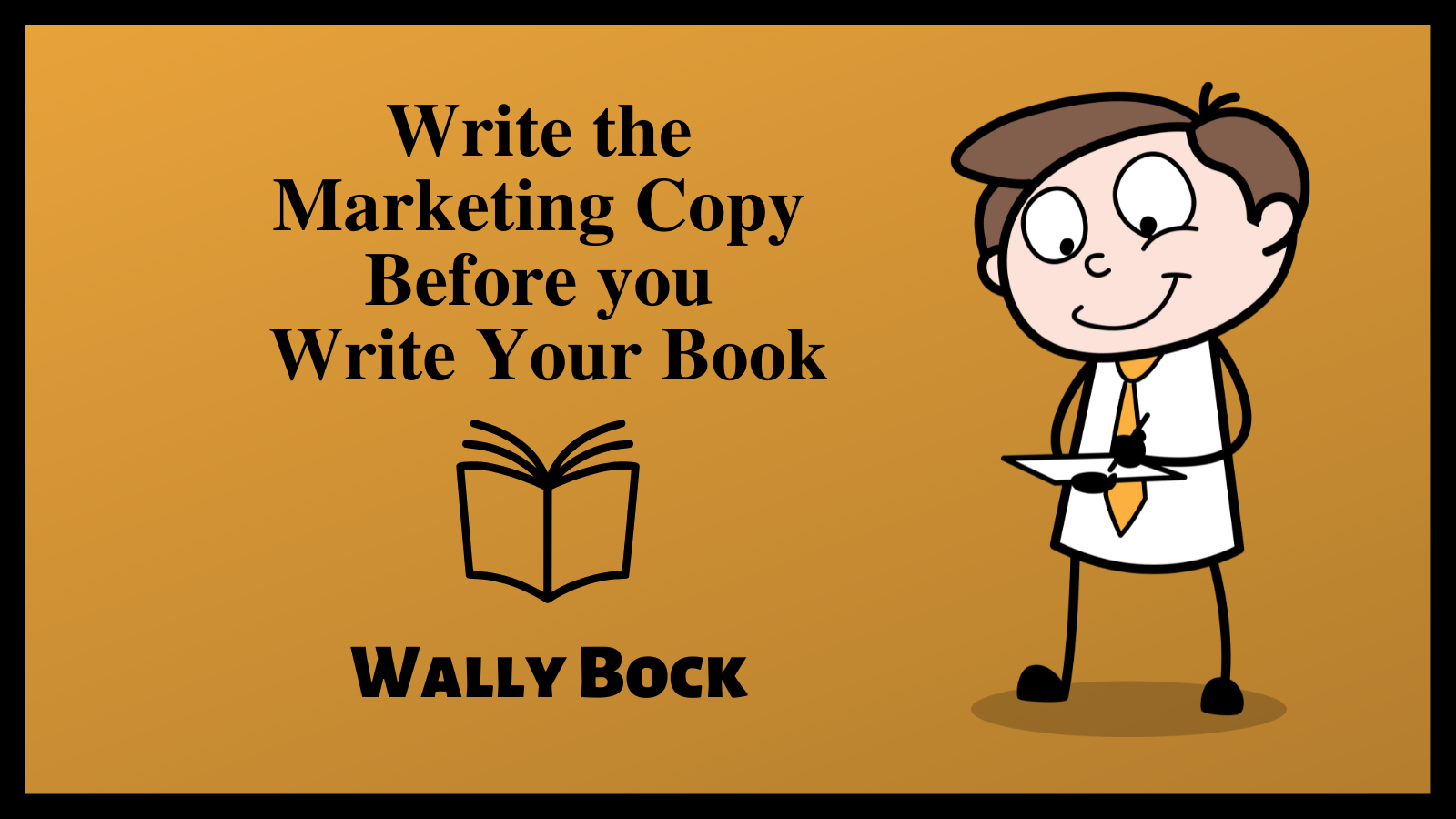We were a third of the way through Jerry’s book when he started going off down a particularly tempting side path. I asked him a simple question, “Do you want to write the book we originally conceived or this new book that you’ve started writing?” Jerry decided the original concept was better and got back on track.
The reason we could do that is that we had a clear statement of what the book Jerry wanted to write would be about. We had that statement because we wrote the marketing copy for Jerry’s book before he wrote a word of it.
When you write your marketing copy before you write your book, you have a short reminder of the kind of book you intend to write. When it looks like you’re going off track, that statement can help you regain your true path. When you’re considering what to include in a chapter, you can test every item you’re considering by asking whether it helps you keep your book’s main promise.
It’s your book, so you can change your marketing statement and the promise of the book whenever you like and for whatever reason. But your marketing copy can be a constant reminder of the book you wanted to write when you planned the project.
The marketing copy should be all about the reader and how he or she will benefit from reading your book. Your first task is to define your ideal reader.
Who should read your book
Identify a single reader you will write the book to. I’m talking about a real person with a Social Security number and a few bad habits. I’m not talking about a demographic description or something vague and general.
You probably already know a person like the one you expect to read your book. Think of him or her as your ideal reader. When you know your ideal reader, you can describe how he or she will benefit from reading your book.
If your book is about improving business
If your book is about improving a business, get specific about how that will happen. How will you increase revenue or decrease expenses? Will you make it easier for employees to do things? How will you make the business a great place to work?
Perhaps you plan to write a book about how to improve a business in specific ways. Whether it’s social entrepreneurship, sustainability, diversity, or something else, get specific.
If your book is about improving individual skills
Some business books are about improving individual skills. If that’s the book you’re writing, you can find some handy checklists describing what great performance looks like. Use them to inform your marketing statement. Here’s an example if you’re writing about management or leadership.
Google did an intense research project to discover what great managers did. Adam Bryant and Kevin Sharer wrote a whole book about “the challenges that make or break all leaders.”
If management isn’t your topic, here’s a list of other questions you can ask and answer.
How will your book make the reader rich? This needn’t be private-island kind of rich. Just tell the reader how to make more money or keep more money or keep from losing the money they have.
How will your book make the reader famous? Again, this doesn’t need to be world-class famous. help the reader improve their reputation.
How will your book make the reader more powerful? Help him or her develop skills they can use to achieve their goals. Describe what the reader can do to increase influence.
How will your book make the reader’s life easier? Everybody wants to get the same results or better with less effort.
Draft your core promise
Now that you’ve thought about the book you want to write, draft its core promise.
Describe the situation. I like to use a sentence or two that begins with the phrase, “You know how…”
Describe the book. I like to use a sentence or two that begins with the phrase, “Well, this book…”
Describe the benefit the reader can expect. I like to use a sentence or two that begins with the phrase, “so that…” at the end of the book description.
Your core promise is the basis for all of your marketing copy. You could write the actual copy for the book later. For now, your statement of the core promise of the book is enough to remind you why the book is important, who will be reading it, and what they will get out of it.
Takeaways
Remember what’s important as you write.
You can change or refine it later.
Decide who should read your book.
Your book should make the reader’s life different.
There are two kinds of business books.
Some books are about making the business better.
Some books are about making the reader better.
Draft and sharpen your key promise.
Keep that promise as you write.
